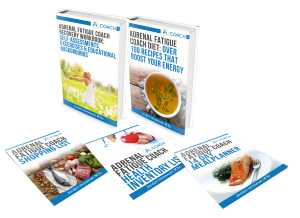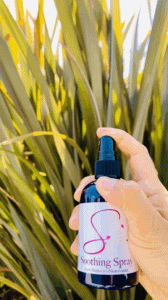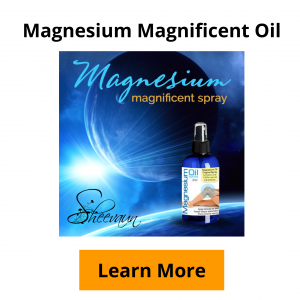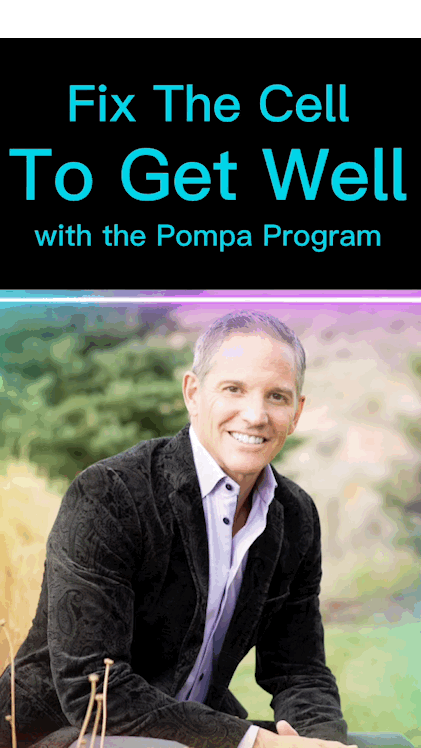
Do you wish to learn more about adrenal fatigue, stress, burnout or psychology terms? To help you out, we have listed below a full glossary with important adrenal fatigue, and psychological terms. You will see all of these terms also sprinkled throughout our pages and blog articles. So please make sure to bookmark this page as a resource!
| # | A | B | C | D | E | F | G | H | I | J | K | L | M | N | O | P | Q | R | S | T | U | V | W | X | Y | Z
#
4-7-8 Breathing: This is a deep breathing technique developed by Dr. Andrew Weil. It’s based on the yogic “pranayama technique” and is used to help practitioners gain control over their breathing. It helps combat moderate anxiety, insomnia, food cravings and inner tension. Breathe in quietly through the nose and blow air out forcefully to make a whoosh noise. Then breathe out for 4 seconds, and hold the breath for 7 seconds and then exhale completely for 8. Repeat 2-4 times.
__________________________________________
A
Acute Stress: Acute stress is the most common type of stress. It comes on suddenly and lasts typically for a short period of time. This is often colloquially referred to as the fight-or-flight response, that is triggered in in response to danger by the sympathetic nervous system.
This “on the spot” form of stress can acutually be good for you because the stress hormones released help your mind and body to deal with the situation. Too much short-term stress however can result in psychological distress, upset stomach, tension headaches, and other stress-related symptoms.
Adrenal Fatigue: Adrenal fatigue occurs when you have been repeatedly or prolonged in a heightened state of arousal/stress. It is what many of us refer to as “burn out”. The constant activation of your adrenal system together with the constant production of the stress hormones can take it’s toll on your body. Eventually it even prevents your ability to produce all of the necessary neurotransmitters and hormones in sufficient amounts. As a result, if you suffer from adrenal fatigue, you may find that you lack energy and awareness, motivation and you feel tired or even depressed most of the time. The best treatment? Rest!
Adrenal Glands: The adrenal glands are endocrine glands located on top of each kidney. They produce hormones you can’t live without including adrenaline, cortisol and aldosterone. Adrenaline is one of the main hormones responsible for your stress response. Adrenal gland disorders happen when the adrenal glands produce too little or too much of these hormones.
Adrenaline: Adrenaline (or epinephrine) is a hormone released from the adrenal glands and its primary responsibility, together with noradrenaline, is to prepare your body for ‘fight or flight’. This means your body is more alert, physically stronger, and has greater energy. Your adrenal glands produced in small amounts continuously. But during stress your brain sends messages to your adrenal glands to increase adrenaline production.
Adrenocorticotropic hormone (ACTH): ACTH is produced by the pituitary gland. Its primary function is to stimulate the production and release of cortisol from the cortex of the adrenal gland. Stress, both psychological and physical, also stimulates ACTH production and therefore increases cortisol levels.
Amygdala: The amygdala is an almond-shaped structure in the brain that is found in each hemisphere. It’s responsible for our ability to experience emotions. When you experience a stressful event, the amygdala sends a distress signal to your hypothalamus.
Anterior Pituitary: The anterior pituitary is the front of the pituitary gland and part of your endocrine system. This specific area of the pituitary produces 6 hormones: human growth hormone, thyroid stimulating hormone, adrenocorticotropic hormone, follicle stimulating hormone, prolactin, and luteinizing hormone. It regulates many physiological processed including stress, reproduction and growth.
Anxiety: Anxiety is your body’s natural response to stress. Many of us will feel anxious when we are faced with challenges, when we don’t feel safe or when we are unsure about something that we are required to do. But when feelings of anxiety last for longer than six months, are extreme, and are interfering with your life, you may have an anxiety disorder.
Aromatherapy: Aromatherapy is a holistic healing treatment that uses natural plant extracts to help improve and balance you both physically and emotionally. Aromatherapy often uses scented oils (essential oils) such as lemon, bergamot, and eucalyptus, many of which have been shown to increase levels of feel good hormones like serotonin.
__________________________________________
B
Belly Breathing (Diaphragmatic breathing): Belly breathing, sometimes called abdominal breathing, is a deep breathing technique that involves breathing through the stomach first. This type of breathing relaxes the muscles and massages the internal organs. It’s beneficial for your physical and mental health.
Blood Pressure: Blood pressure is one of your vital signs together with heart rate, respiratory rate, oxygen saturation, and body temperature. Blood pressure is a measure of force that your heart uses to circulate blood throughout your body. It’s elevated during stress due to increased heart rate and blood viscosity. This can potentially be dangerous and lead to serious health issues such as cardiovascular/heart disease.
__________________________________________
C
Cardiovascular: Your cardiovascular system is consists of your heart that pumps blood, your lungs that oxygenate blood, your arteries that supply oxygenated blood to all organs and tissues, and your veins that bring back blood to your heart. It’s important to be aware of the impact of stress on cardiovascular health.
Cholesterol: Cholesterol is a fat-like waxy substance that circulate around your blood. It forms part of the lining of every cell, is used to make hormones, vitamin D and substances that help you digest foods. There are two types of cholesterol; HDL (high-density lipoproteins, good cholesterol) and LDL (low-density lipoproteins, bad cholesterol). LDL may increase blood pressure and risk of heart disease.
Chronic Stress: Chronic stress is the negative form of stress that comes from repeated or prolonged exposure to stressful situations. When extended like this, this type of stress causes wear and tear on your body. It keeps your body jn a heightened state of arousel, suppresses the activity of your immune and digestive systems.
Circadian Rhythm: Circadian Rhythm: Circadian rhythms are mental, physical and behavioral changes that follow a daily cycle. They tell our bodies when to eat, sleep and rise and are controlled by biological factors as well environmental factors. Circadian rhythms primARILY respond to light and darkness in your environment.
Cognitive Behavioral Therapy: CBT is a psychotherapeutic intervention that focuses on challenging and changing unhelpful thoughts, attitudes, beliefs and behaviors. It improves emotional regulation and helps patients develop personal coping strategies to solve current problems. CBT has proven to be a highly effective therapeutic tool, especially for conditions like chronic stress, social anxiety and OCD.
Cortisol: Cortisol is a steroid hormone that helps the body respond to stress. It’s also sometimes called the “stress hormone”. That’s because levels of cortisol in the body spike during stressful times. Cortisol is linked to a range of other hormones and closely tied to our blood sugar levels, appetite and sleep/wake cycle.
__________________________________________
D
Deep Breathing: Deep breathing is one of the best ways to lower stress in the body. By breathing deeply you send a message to your brain to calm down and relax. The brain then sends this message to your body and reduces arousel and restores calm.
Depression: Depression is a common mental health disorder that negatively affects how you feel, the way you think and how you act. Depression causes feelings of sadness and/or a loss of interest in activities once enjoyed. It can lead to a variety of emotional and physical problems and can interfere with a person’s ability to function at home and at work. The cause for depression is not fully understood but it appears to be linked to stress, inflammation through pro-inflammatory cytokines and adrenal fatigue among other things.
Distress: Distress, or “bad stress”, occurs when something becomes to difficult to deal with for an individual. Distress causes tension to build within the mind and body, and the task at hand suddenly seems daunting. Distress furthermore often results in poor decision making skills. Physiological symptoms commonly linked to distress include rapid, shallow breathing, high blood pressure, headaches and muscle aches. Behavioral symptoms include negative coping skills (i.e., avoiding the task at hand), maladaptive behaviors such as drinking or smoking and over or under eating. Also see Eustress, which is perceived as an “adaptive stress” or “beneficial stress”.
Dopamine: Dopamine is an important chemical messenger in the brain and is linked to motivation, reward, attention, memory and even regulating body movements. When dopamine is released in large quantities, it creates feelings of pleasure and reward, this motivates you to repeat a certain behavior.
__________________________________________
E
Emotional Stress: Emotional stress is stress that’s caused by emotional factors. This can manifest for instance as irritability, anxiety and moodiness. It’s key to recognize the complex dynamic between our emotions, our physiology and our psychology.
Essential Oils: Essential oils are the chemical activate components of many plant sources such as roots, bark, flowers and seeds. Essential oils are burned during aromatherapy sessions in order to improve mental, physical, emotional and spiritual well-being.
Eustress: Eustress is a term that’s coined by endocrinologist Hans Selye, and means “good stress”. While we might see stress as something negative, the truth of the matter is that we need small amounts of stress in our lives in order to feel motivated and to work effectively. Without any stress, we would not save money for the future, study for exams or work out in the gym. Eustress is uncomfortable but leads to personal growth. It has been positively linked to well-being and life satisfaction.
__________________________________________
F
Fight-or-Flight Response: The fight-or-flight response, or the acute stress response, is a physiological reaction that occurs in the presence of something that is perceived as stressful and threatening, either physically or mentally. The response is triggered by the release of hormones that prepare your body to either stay and deal with a threat or to run and escape the situation.
__________________________________________
G
General Adaptation Syndrome: General Adaptation Syndrome is suggested by Hans Selye. It is the three-stage process that describes the physiological changes the body goes through when under stress. These stages are “alarm”, “resistance” and “exhaustion” and can generally be seen as the acute fight-or-flight response, followed by chronic stress and ultimately adrenal fatigue.
__________________________________________
H
Hans Selye: Hans Selye was a leading psychologist and acknowledged as the “Father” of the stress research field. He suggested the general adaptation syndrome, and came up with the “stressful life events rating scale” which indicates the most stressful common life events.
HDL: High-density lipoprotein (HDL) is the “good kind” of cholesterol. HDL is like a vacuum cleaner for cholesterol as it removes extra cholesterol and plaque buildup in your arteries.
Hippocampus: The hippocampus is a brain area which is found in the temporal lobe below the cerebral cortex. It’s part of the limbic system and is primarily associated with memory and spatial navigation.
Homeostasis: Homeostasis means equilibrium or balance. It is your body’s ability to maintain internal stability to compensate for environmental changes. Your body is always working to protect you without you noticing. A simple example of homeostasis is your body’s ability to keep an internal temperature around 98.6 degrees Fahrenheit (or 37 degrees Celsius), no matter what the outside temperature is.
Hypothalamus: The hypothalamus is a small but important area in the center of the brain. It plays an important role in hormone production and helps stimulate many key processes in your body. Among these is to link the nervous system with the endocrine system via the pituitary gland. This gives it a crucial role in managing the fight-or-flight response and homeostasis.
__________________________________________
K
Kaizen: Kaizen is a combination of 2 Japanese words “Kai (change) and “Zen” (good, or for the better). It is the Japanese philosophy of continuous improvement by making small steps. The idea is that to create lasting change, results that stick around, you have to focus on small things that you can do regularly. Instead of trying to completely overhaul your lifestyle at once.
__________________________________________
L
LDL: LDL, or Low-density lipoprotein cholesterol, is commonly referred to as the “bad kind”. It is called the “bad” cholesterol because a high LDL level causes fatty deposits on the insides of the blood vessels. This narrows the arteries and increases the risk for stroke, heart attack or stroke and peripheral artery disease.
Libido: Libido is our sexual desire or sex drive. Stress can greatly impact our libido and is responsible for impotence in men and a lack of sex drive in both men and women. Stress can cause this by changing hormonal balance, and also by impacting blood circulation.
__________________________________________
M
Magnesium: is an essential dietary mineral crucial for your body. It keeps your heart rhythm steady, supports strong bones and helps regulate healthy blood pressure. It’s sometimes also called “nature’s Valium” as it nourishes the nervous system. It helps prevent, nervousness, anxiety, fear, irritability and restlessness.
Meditation: Meditation is perhaps the best thought of as a form of attention and awareness training. Numerous studies have shown that it’s one of the single most effective tools for combating stress. There are many different forms of meditation from transcendental to Zen, to mindfulness.
Metabolism: Metabolism refers to the process of converting food into energy that allows our body to function. We can be either in states in states of calm restoration (anabolic) or in states of arousal (catabolic) and these correspond to our states of calm and stress. When you want to understand stress it’s crucial to consider the role of physiology.
Mindfulness: Mindfulness is simply about being aware of the present experience. We usually drink a glass of water, get dressed or drive to work unaware (in an automatic way, without really noticing it). Mindfulness can be practiced as a form of meditation. But it can also be used to change what you focus on and how you respond to stress.
__________________________________________
N
Negative Feedback: Negative feedback is a reaction to the use of certain supplemens and medications which can render them inert. This is a biological response when a hormone level is too high, and causes the body to decrease its own production of the hormone.
Nervous System: The nervous system consists of the spinal cord, brain, sensory organs, and all of the nerve cells that connect these organs to the rest of the body. The nervous system is responsible for your ability to think and to perceive, your ability to move, to feel and to interact with the world around you.
Noradrenaline: Norepinephrine is similar to adrenaline. But whereas adrenaline is a stress hormone, noradrenaline is classified as a neurotransmitter. It works by narrowing the blood vessels, increasing blood pressure and blood sugar levels.
Norepinephrine: Norepinephrine is also known as noradrenaline. See above.
__________________________________________
P
Panic Attack: A panic attack is a sudden period of intense fear that can cause severe physical reactions when there is no apparent cause or real danger. Panic attacks are characterized by rapid breathing, palpitations, racing thoughts and a tight feeling in the chest. Panic attacks typically reach their peak level of intensity in 10 minutes or less and then begin to subside.
Physical Stress: Stress is a broad term and can be both mental or physical. For instance if you are very tired, in pain, or dehydrated then this can lead to physical stress.
Pituitary Gland: The pituitary gland is a small pea-sized gland that is found inside the skull at the base of the brain. It’s main function is to secrete hormones that retain many of our bodily functions. Sometimes also called the master gland as the pituitary controls the function of most other endocrine glands.
Progressive Muscle Relaxation: Progressive muscle relaxation is a deep relaxation technique effectively used to ease stress and anxiety and protect against stress-related ailments. It is based on the simple practice of tensing/tightening one muscle group at a time followed by immediate relaxation of the muscles.
Psychological Stress: Stress can be physical in origin like an infection. But so too can it be psychological. An example would be someone yelling at you and threatening abuse. Most of us will associate psychological stress with stress in general; anxiety over current circumstances or fear over the future.
__________________________________________
R
Resilience: Resilience is the process of adapting well in the face of a tragedy, health concern, adversity, natural disaster, work, school or relationship problem. It means bouncing back quickly when the going gets tough.
__________________________________________
S
Stress: Stress is a general term and is used to describe a state of arousal associated with anxiety, concern or danger. We are stressed when we struggle to cope with the pressures of life. But, stress can also be positive, (eustress). For example having a child, getting married, or receiving a promotion.
Stress Hormones: Stress hormones are produced by the body in response to exciting or stressful situations. The 3 major stress hormones are Adrenaline, Cortisol, Norepinephrine and these are mostly responsible for the fight-or-flight response. Estrogen and testosterone are also hormones that affect how we react to stress and so are the neurotransmitters dopamine and serotonin.
Stressor: A stress trigger, or stressor, is a stressful event that creates the fight-or-flight response.
Stress Response: Also known as, the fight-or-flight response, describes the body’s response to a stressful event. The response is triggered by the release of hormones that prepare the body to either stay and deal with the stressful situation or the run away to safety.
Stress Therapy: A form of therapy that is specifically aimed at treating stress. This can take on many different forms or even include a wide range of different forms of treatment by combining the likes of CBT, meditation, Acupressure, forest bathing, color therapy or aromatherapy.
Stress Trigger: See Stressor.
Sympathetic Nervous System: The sympathetic nervous system is the part of the nervous system responsible for the fight-or-flight response. It is opposed to the Parasympathetic Nervous system which puts the body into a relaxex “rest and digest” state.
__________________________________________
T
Thyroid: The thyroid is a small gland and is located in the lower-front part of your neck. It’s responsible for producing the hormones T3 and T4 which help to regulate metabolism. Hypothyroidism is an underactive thyroid gland. It causes the metabolism to run too slow and you therefore feel tired, sluggish while gaining weight. Hyperthyroidism on the other hand is an overactive thyroid. It makes every function of your body speed up making you feel overly anxious and packed with energy.
Transcendental Meditation (TM): Transcendental meditation is a type of meditation that was introduced by Maharishi Mahesh Yogi in the 1950s in India. It gained in popularity at the end of the 20th century. It is a form of meditation that is usually practiced twice for 15-20 minutes a day in a normal sitting posture. Famous TM practitioners are Oprah Winfrey, Jennifer Aniston, Matt Bomer, Tom Brady, Russel Brand, Deepak Chopra, Ray Dalio, Ellen Degeneres, Tom Hanks, Kate Hudson, Maria Shriver, Usher and many others.
__________________________________________
Y
Yoga: The tradition of yoga is about five thousand years old and has its roots in India. Yoga is a philosophy, a way of living and a practise method. The goal of yoga is inner liberation or enlightenment. This state can be achieved through body postures, breathing techniques and meditation. Yoga is a good way to energize and strenghten your body. Especially with the quick pace of modern day life, practising yoga brings peace and relaxation.
__________________________________________
Z
Zazen: Also known as “seated meditation” (Japanese: 座 禅, literally “seated attention”) is a meditation form practiced in Zen Buddhism. Zazen is practiced to be freed from suffering, by realizing a calm, waking spirit that is not hindered by intense emotions and illusions.
Zen: Zen is a form of Buddhism that places a strong emphasis on concentration meditation or “dhyana”. This provides insight into one’s own true nature in order to open the way to a liberated way of life.








